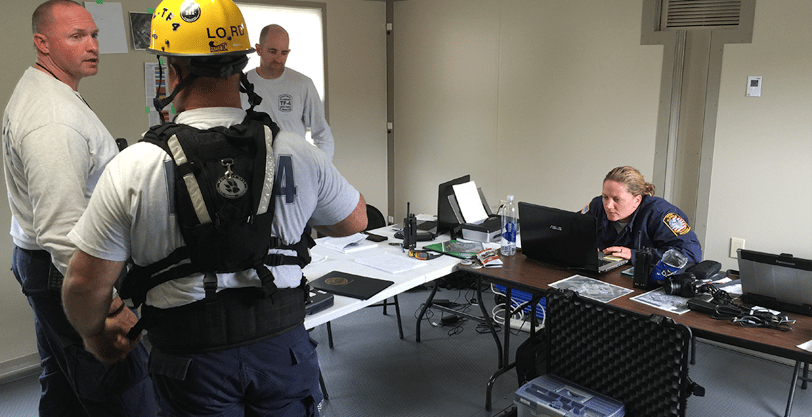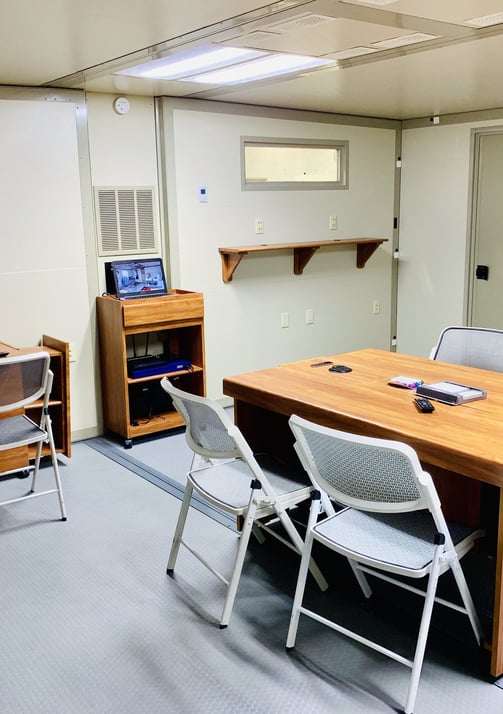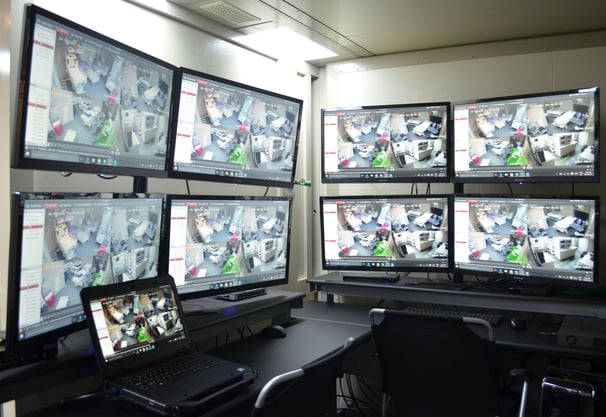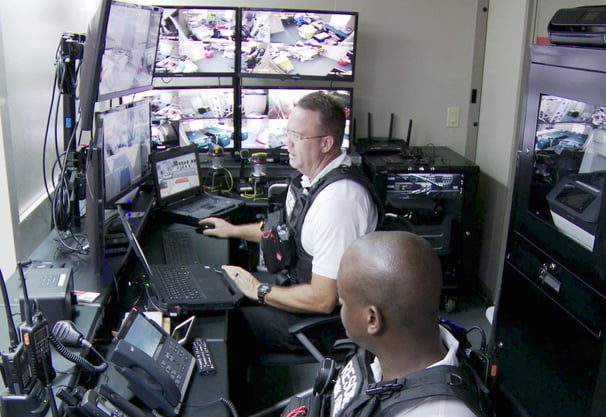Mobile Command Centers, The Brains Behind Rapid Fire Response in Texas
As Fire Chiefs in Texas, you're no stranger to the immense challenges that come with protecting lives and properties. From battling wildfires in the arid plains to managing hurricane responses along the Gulf Coast, the need for quick, coordinated action is critical. In a state as large and varied as Texas, Mobile Command Centers (MCCs) have emerged as the strategic solution that can make all the difference when seconds count.
INNOVATION HIGHLIGHTS
5 min read


What Are Mobile Command Centers?
A Mobile Command Center is essentially a command post on wheels, designed to be deployed directly to the scene of an emergency. It’s equipped with everything you need to manage a response effectively—advanced communication tools, real-time data access, and command and control systems. MCCs are more than just mobile offices; they are the nerve centers that ensure all aspects of your operation run smoothly, even under the most challenging conditions.
Core Components of an MCC
The essential features of an Mobile Command Center include:
Communication Systems: These systems include radios, satellite phones, and secure internet connections, enabling seamless communication between the field, the fire station, and other emergency services, even in the most remote areas of Texas.
Real-Time Data Access: MCCs are equipped with technology to access live data feeds, such as weather updates, GIS mapping, and even drone footage. This capability is crucial in dynamic situations like wildfires, where conditions can change rapidly.
Command and Control Tools: Software within the MCC helps you track resources, manage personnel, and coordinate with multiple agencies, ensuring that everyone is working from the same playbook.
Enhancing Communication and Coordination
In the middle of an emergency, clear and constant communication is your lifeline. Texas's diverse geography—from the Piney Woods in the east to the vast deserts of West Texas—presents unique communication challenges that MCCs are designed to overcome.
The Communication Game-Changer
One of the most critical functions of an MCC is its ability to maintain communication no matter the situation. In Texas, where rural areas might lack reliable cell service, MCCs equipped with satellite communication systems ensure that you can keep in touch with your teams on the ground. During Hurricane Harvey, many local communication networks were down, but MCCs in the area were able to maintain vital lines of communication, coordinating rescue operations and resource distribution despite the chaos.
Real-Time Decision Making
Having access to real-time data is a game-changer, especially in fast-moving emergencies like wildfires. MCCs provide the tools to make informed decisions quickly. For instance, during the 2017 wildfires in the Texas Panhandle, MCCs allowed fire chiefs to access real-time weather data, which was critical in predicting wind shifts and redeploying resources to protect vulnerable areas.
Deployment Strategies for Texas
Texas's size and diverse landscape mean that a one-size-fits-all approach doesn't work when deploying MCCs. Your deployment strategy needs to be as varied as the terrain you cover.
Dealing with Wildfires
Wildfires are a persistent threat in Texas, particularly in the western and central parts of the state. Deploying an MCC to the right location can make all the difference in managing these fast-moving disasters. The key is to position your MCC close enough to the fire to coordinate effectively but far enough away to ensure safety. During the Bastrop County Complex fire, an MCC was crucial in coordinating air and ground units, providing a centralized hub for managing the large-scale response effort.
Managing Hurricanes Along the Gulf Coast
When a hurricane is bearing down on the Gulf Coast, rapid deployment of MCCs is essential. These centers should be set up in locations that are safe from the immediate impact but close enough to be effective once the storm passes. For example, during Hurricane Harvey, MCCs were deployed to staging areas outside the immediate impact zone, ready to move in as soon as the storm cleared to begin coordination of relief efforts.
Customizing MCCs for Texas Fire Departments
No two fire departments are the same, and your MCC should reflect the specific needs of your team and the types of emergencies you face. Customization is key to maximizing the effectiveness of these mobile units.
Tailoring the MCC to Your Department
Texas is home to a wide range of fire departments, from small rural volunteer units to large urban teams. Your MCC can be customized with the tools and equipment that best meet your department's needs. For instance, if your department frequently responds to oil and gas industry incidents, your MCC can be outfitted with specialized hazardous materials monitoring equipment. The ability to tailor your MCC to the unique risks in your area is one of its greatest strengths.
Integrating with Existing Infrastructure
Your MCC is not a standalone solution; it’s an extension of your existing command infrastructure. Seamless integration with your current systems is crucial for ensuring that when you deploy your MCC, it enhances rather than complicates your operations. This might involve training your personnel on the new systems or ensuring that your MCC’s technology is compatible with your existing communication networks.
Future-Proofing Fire Response with MCCs
The threats we face are constantly evolving, and our response tools need to keep pace. The future of MCCs lies in embracing new technologies and adapting to the changing landscape of emergency response.
Embracing Technological Advancements
Emerging technologies, such as artificial intelligence (AI) and autonomous drones, are set to further enhance the capabilities of MCCs. Imagine being able to deploy drones to scout ahead of a wildfire while your MCC’s AI system analyzes the data and provides predictive insights on the fire’s potential path. These innovations will make MCCs even more indispensable in the coming years.
Adapting to Texas’s Evolving Threats
As climate change leads to more frequent and severe natural disasters, and urbanization increases the complexity of our fire response efforts, MCCs will need to be continuously updated and adapted. The ability to quickly upgrade your MCC’s technology or reconfigure it to meet new challenges will be crucial in staying ahead of the curve.
The Essential Role of MCCs in Texas Fire Response
In a state as large and varied as Texas, the ability to respond quickly and effectively to emergencies is paramount. Mobile Command Centers provide the coordination, communication, and real-time data access that are essential to managing these responses efficiently. Whether you’re battling a wildfire in West Texas or preparing for a hurricane along the Gulf Coast, an MCC gives you the tools to make informed decisions, coordinate resources, and ultimately save lives.
If your department hasn’t yet explored the benefits of an MCC, now is the time. Evaluate your current capabilities and consider how an MCC could enhance your operations. With the right tools in place, you’ll be better equipped to face whatever challenges come your way, ensuring that your department remains at the forefront of emergency response in Texas.












Mobile Command Center
© 2024. All rights reserved.


Coconut Creek, FL. | 954.949.3200 | sales@fortstemporaryfirestation.com
DOWNLOAD CATALOG


